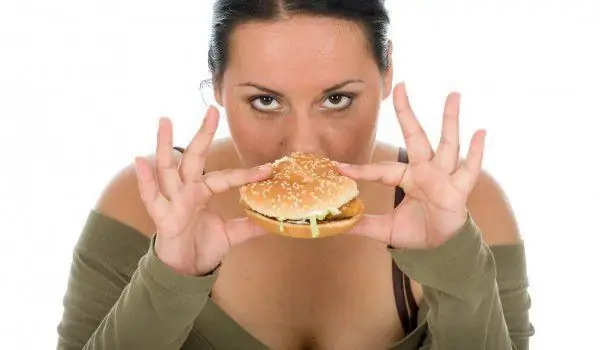2025 Author: Jasmine Walkman | [email protected]. Last modified: 2025-01-23 10:18
Statistics show that more than half of the world's population is infected or carries the bacterium Helicobacter pylori. It is a spiral bacterium that lives in the natural environment of the human stomach.
According to studies by leading medical institutes, Helicobacter pylori is found in 99 percent of cases of duodenal ulcer, in approximately 60 percent of stomach ulcers and in 80 percent of stomach cancer caused by bacteria.
One of the main consequences of Helicobacter pylori infection is the effect on the production of stomach acid. If the bacteria colonize the area where the stomach joins the small intestine, this affects the cells that control the secretion of stomach acid. This can lead to overproduction of hydrochloric acid and hence to the formation of ulcers.
Helicobacter pylori is an "adhesive" that attaches to the layer of the cell surface under the lining of the stomach, thus protecting the body's immune responses.
Infection with this bacterium can become a chronic process that lasts for decades and in combination with other complications can have lasting consequences for your health. Unfortunately, there are still no generally accepted symptoms to signal infection with this bacterium.
Changing the diet, according to more and more research, can lead to the prevention of Helicobacter pylori infection and the complete cleansing of the body from it. A diet rich in vitamin C has shown success in 30 percent of cases of bacterial infection.
Foods to avoid are foods used by bacteria to multiply and develop, such as sugar, chocolate, coffee, milk and dairy products, red and processed meats, acidic foods, refined foods, tomatoes, vinegar, salt and spirits..
Other foods that should be avoided are spicy foods and powdered spices such as chili powder, red and black pepper, cloves, nutmeg and others.
High-fat foods are also not recommended because they can increase inflammation of the lining of the stomach. Also avoid hot foods and drinks and oils.
Recommended:
Prohibited Foods For Reflux

Reflux is a problem of the digestive system. It causes irritation of the lining of the digestive system as a result of food intake. Nowadays, more and more people are suffering from this problem. Generally speaking, reflux means the return of gastric juice to the esophagus.
Prohibited Foods Before Bedtime

If you have the weakness to eat a lot at dinner, and before going to bed eat something else, you should know that this is quite harmful. While the body is young, it can cope with this abundant intake of nutrients in the evening, but over the years it will begin to show a lot.
Prohibited Foods In Hepatic Steatosis

Hepatic steatosis is an obesity of the liver. It is a metabolic disease characterized by the deposition of large amounts of fat in this organ. People with an obese liver should pay special attention to their diet. Prohibited foods for hepatic steatosis are cooked and smoked sausages and smoked meats, fatty meats, and products containing animal fats.
Prohibited Foods For Ulcers And Gastritis

Gastritis is an inflammation of the lining of the stomach, often caused by increased secretion of gastric juices. This condition can be caused by an existing infection with bacteria - Helicobacter pylori, the presence of bile juices from the duodenum, as well as the intake of certain foods and beverages.
Exotic Foods Prohibited By Law

Although certain exotic foods are considered traditional by some peoples, for the rest of the world these dishes could be quite problematic. Here are some strange dishes that few find delicious, but they are still banned by law for one reason or another:

